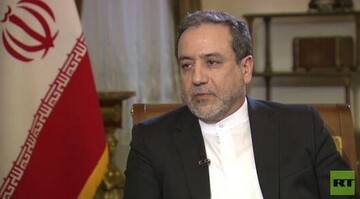Abbas Araghchi, who is in China at the invitation of his Chinese counterpart to discuss Iran nuclear deal, told IRNA that the fact that the Europeans are still serious about INSTEX and regard it as a trade mechanism to keep financial ties with Iran, despite the US sanctions, is per se of value.
Araghchi said that although the six countries are joining the mechanism as shareholders, it is valuable. But the efficiency of the mechanism is a totally different issue.
He said if the Europeans don’t enter reasonable trade with Iran and just engage in different fields to establish trade, it will naturally not be able to do anything for INSTEX. Iran hopes that the joining of the new countries will bring more energy to the mechanism.
Belgium, Denmark, Sweden, Finland, Norway, and the Netherlands issued a joint statement announcing that they are joining INSTEX to enter trade with Iran and to safeguard the Joint Comprehensive Plan of Action (JCPOA) signed by Iran and the five permanent members of the United Nations Security Council plus Germany, from which the US unilaterally withdrew in March 2018 and re-imposed its sanctions on Iran. The INSTEX was designed in the first place to make up for the US unilateral pullout of the deal.
The statement said that the deal was endorsed by the UNSC and is also an important element in the non-proliferation regime of the nuclear weaponry.
Saying that the INSTEX is in the final steps of operationalization, Araghchi said that the INSTEX, even during sanctions, can cover 20 percent of the economic relations of Iran.
He added that of course the economic ties between Iran and China don’t need the INSTEX, the two countries have already designed their own mechanism. However, the Europeans said that after the INSTEX got operationalized and well-established, they will introduce barter system to non-European countries as well.
Araghchi also said that the fact that some countries are distancing themselves from the US dollar and are using national currencies for trade, especially with Iran, is an important step.
Iran's deputy foreign minister had earlier said in China on Saturday that the Iranian economy has recovered from the shock of the US withdrawal from Iran nuclear deal.



Your Comment